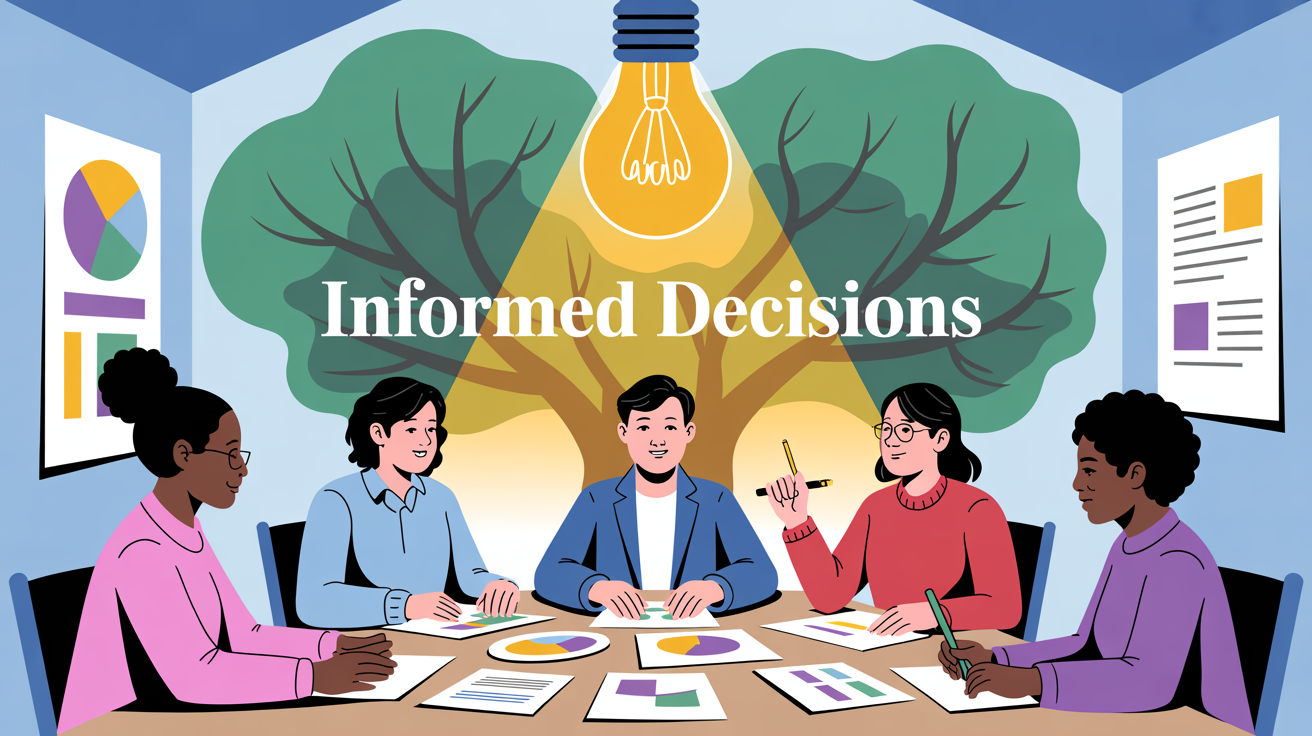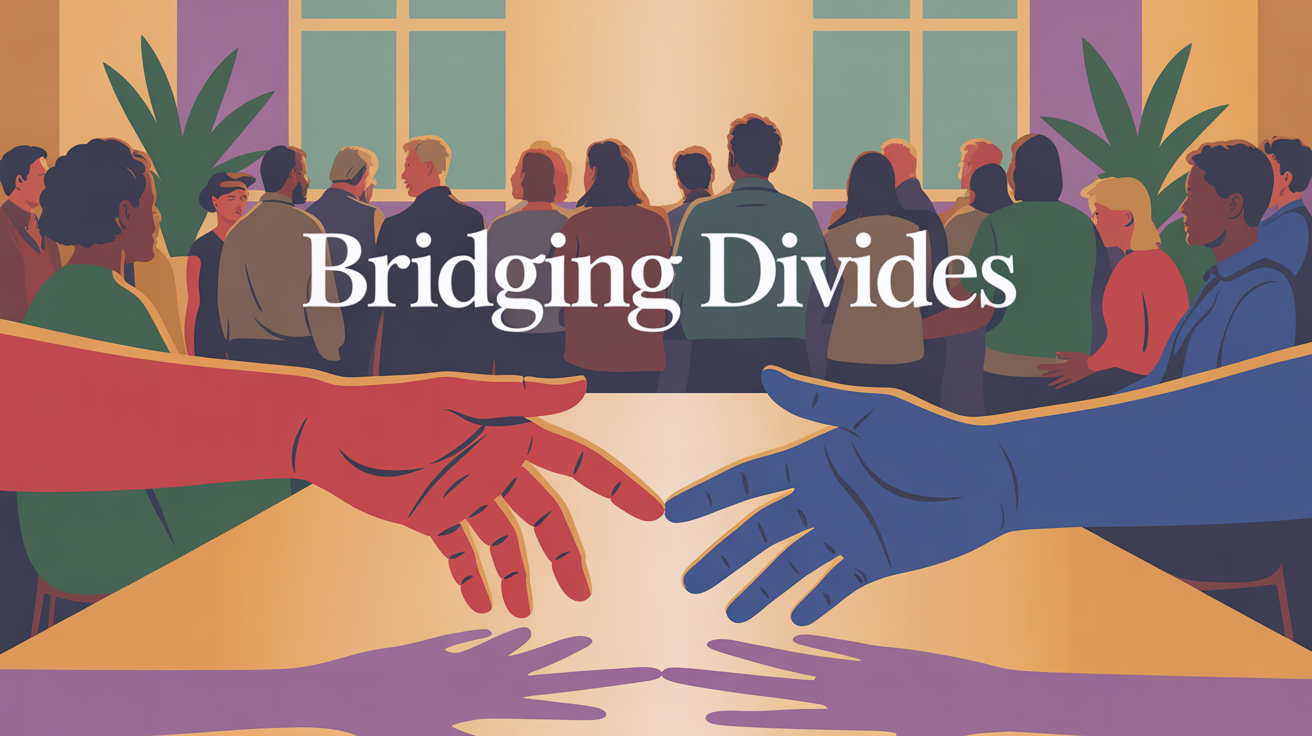Benefits of Deliberative Democracy Transform Communities
Imagine a democracy where every voice contributes to decision-making with thoughtful discourse. Benefits of deliberative democracy deliver the very same, enabling citizens to engage deeply within government. Distinct from simple voting, deliberative democracy brings citizens together to discuss, reflect, and determine issues, framing inclusive and informed solutions. Here at Civic Voices on Culture Mosaic, we’re exploring why the benefits of deliberative democracy are sparking a civic revolution in the USA, from stronger policies to united communities. Join us to discover how this approach can reshape America’s future!
What is deliberative democracy?

Deliberative democracy is a model whereby citizens deliberate over problems in formal, participatory forums, reconciling diverse perspectives to make informed choices. It contrasts with polarized debate in emphasizing dialogue, fact, and respect. In the USA, initiatives like Stanford’s Deliberative Polling illustrate how this paradigm shapes climate change and health policy.
Benefit 1: Enhances Informed Decision-Making
One of the best strengths of deliberative democracy is better-informed decisions. Equilibrated information, experts’ advice, and diverse viewpoints are made available to citizens, leading to sense-based policies. For example, Oregon’s Citizens’ Initiative Reviews educate voters about measures on the ballot, increasing election outcomes.
Benefit 2: Increases Civic Engagement

Deliberative democracy encourages active participation, one of the major benefits of deliberative democracy for the USA. Through engagement of citizens in debate platforms like town halls, it encourages ownership. Programs like America in One Room (2019) brought 500 Americans together to discuss policy, increasing voter turnout and civic participation.
Benefit 3: Reduces Polarization
The benefits of deliberative democracy include bridging divides. Structured discussions promote understanding across political lines. In Colorado, citizen assemblies on climate policy brought liberals and conservatives together, finding common ground on renewable energy solutions.
Benefit 4: Strengthens Policy Legitimacy

Deliberative democracy-based policy gains legitimacy, an essential strength of deliberative democracy. Citizens’ involvement in decision-shaping builds trust in government. Ireland’s 2016 Citizens’ Assembly on abortion led to a widely supported referendum, a model for participatory USA policymaking.
Benefit 5: Empowers Marginalized Voices
One of the most powerful benefits of deliberative democracy is to hear from underrepresented groups. Open forums ensure varied voices—racial minorities, poor communities—are heard. In Minneapolis, urban dwelling deliberation councils involve varied city residents in urban planning, fostering equity.
Benefit 6: Improves Policy Quality
Deliberative democracy creates robust policies, one of the major benefits of deliberative democracy. Varied input closes blind spots, making outcomes more secure. California’s 2020 redistricting commissions used citizen deliberation to develop more equitable electoral maps, restricting gerrymandering.
Benefit 7: Fosters Community Trust
Community trust increases with deliberative democracy, a second advantage of deliberative democracy. Open discussion fosters openness, as in New Orleans’ post-Katrina rebuilding forums, where citizens developed recovery plans, which helped fortify local relationships.
Benefit 8: Promotes Long-Term Thinking
Another key benefit of deliberative democracy is that it focuses on long-term solutions. Decision-making prioritizes long-term consequences over immediate gains. Oregon’s 2011 Citizens’ Initiative Review of prison sentencing led to resilient reforms, balancing the expense and public safety.
Benefit 9: Enhances Civic Education
The benefits of deliberative democracy include enhanced civic education. All the participants gain knowledge of policy issues, governance, and critical thinking. Stanford’s Deliberative Polling on energy policy educated Americans regarding renewable energy sources, raising public awareness.
Benefit 10: Fosters Collaborative Governance
Deliberative democracy fosters collaboration between citizens and the authorities, one of the benefits of deliberative democracy. Vermont town meetings merge resident input with local government to generate policies based on community needs, such as affordable housing projects.
Benefit 11: Eliminates Misinformation
Through provision of balanced information, deliberative democracy cancels out misinformation, which is a very crucial benefit of deliberative democracy in the USA’s polarized media scene. Structured discussions, like those taken part in Michigan’s redistricting, ensure decisions are fact-based.
Benefit 12: Enhances Social Cohesion
The advantages of deliberative democracy extend beyond decision-making, fostering deeper social connections. Engaging in open dialogue cultivates empathy and a shared sense of responsibility within communities. For instance, in Seattle, neighborhood forums dedicated to housing policy brought together residents from varied backgrounds, strengthening communal ties and nurturing a collective vision for the city’s future.
Benefit 13: Facilitates Scalable Solutions
Deliberative democracy exists on local to national levels, the versatile virtue of deliberative democracy. From town-hall meetings to national projects like America in One Room, it is used to address numerous issues, a model for USA-wide policy change.
Real-World Examples in the USA
The advantages of deliberative democracy are clearly demonstrated through various case studies across the United States. Initiatives such as Citizens’ Initiative Reviews in Oregon, climate assembly projects in Colorado, and urban planning councils in Minneapolis showcase how structured deliberation enhances governance and public participation. These successful examples serve as inspiration, encouraging other communities to implement similar inclusive decision-making processes.
How to Engage in Deliberative Democracy
To enjoy the benefits of deliberative democracy, attend local town halls, citizen assemblies, or online discussions like Polis. Search on Stanford’s Center for Deliberative Democracy (cdd.stanford.edu) or the National Civic League for opportunities. Start local community conversations to shape neighborhood policies.
FAQs About Benefits of Deliberative Democracy
- What are the benefits of deliberative democracy?
It enhances informed decision-making, enhances participation, reduces polarization, and provides voice to diverse viewpoints, among others. - How is deliberative democracy practiced in the USA?
People deliberate in structured forums, like Oregon’s Citizens’ Initiative Reviews or Colorado’s climate assemblies. - Why is deliberative democracy better than voting?
It stimulates conversation, educated, participatory decision-making, as opposed to the often contentious result of voting. - Is anybody eligible to participate in deliberative democracy?
Yes, open meetings welcome all, amplifying the voice of marginalized groups, as in Minneapolis’ urban planning councils. - Where can I learn more about deliberative democracy?
Go to cdd.stanford.edu or brookings.edu for information and USA-based examples.
Become a part of the Deliberative Democracy Movement
The benefits of deliberative democracy—from smarter policies to stronger communities—are changing the civic landscape of the USA. Want in on the conversation? Share your thoughts on civic engagement in the comments below, and learn more at Civic Voices!

